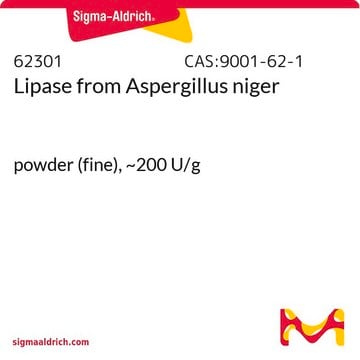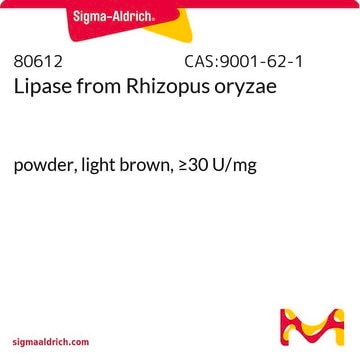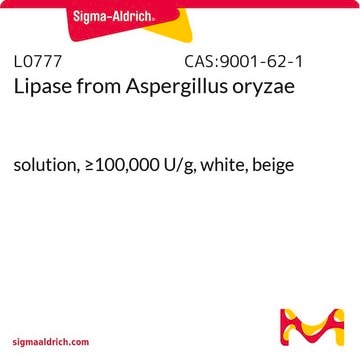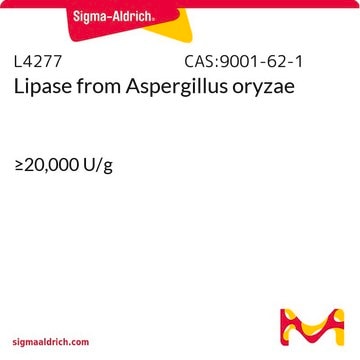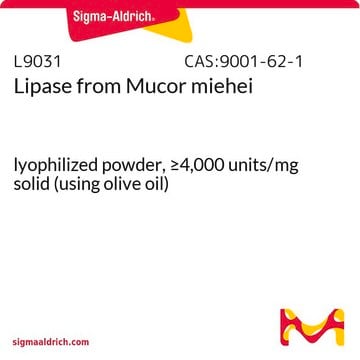62305
Lipase from Rhizopus oryzae
powder (fine), ~10 U/mg
Sinónimos:
Lipase from Rhizopus arrhizus, Triacylglycerol acylhydrolase, Triacylglycerol lipase
About This Item
Productos recomendados
form
powder (fine)
Quality Level
specific activity
~10 U/mg
mol wt
Mr ~43000
storage temp.
2-8°C
InChI
1S/C11H9N3O2.Na/c15-8-4-5-9(10(16)7-8)13-14-11-3-1-2-6-12-11;/h1-7,16H,(H,12,14);/q;+1/b13-9-;
InChI key
QWZUIMCIEOCSJF-CHHCPSLASA-N
¿Está buscando productos similares? Visita Guía de comparación de productos
General description
Rhizopus oryzae lipase (ROL) is a protein synthesized in a precursor form that includes a presequence of 26 amino acids, followed by a prosequence of 97 amino acids, which is attached to the N-terminal of a mature sequence consisting of 269 amino acids.
Application
- to test its effect on 1,2-diolein synthesis and triolein ethanolysis
- for immobilization on graphene oxide support for biocatalysis studies
- to digest triglycerides (TAG) from Chlamydomonas reinhardtii and S. cerevisiae
Biochem/physiol Actions
Lipases catalyze the hydrolysis of triacylglycerols into glycerol and free fatty acids.
Unit Definition
Other Notes
signalword
Danger
hcodes
pcodes
Hazard Classifications
Resp. Sens. 1
Storage Class
11 - Combustible Solids
wgk_germany
WGK 1
flash_point_f
Not applicable
flash_point_c
Not applicable
ppe
Eyeshields, Gloves, type N95 (US)
Elija entre una de las versiones más recientes:
¿Ya tiene este producto?
Encuentre la documentación para los productos que ha comprado recientemente en la Biblioteca de documentos.
Los clientes también vieron
Nuestro equipo de científicos tiene experiencia en todas las áreas de investigación: Ciencias de la vida, Ciencia de los materiales, Síntesis química, Cromatografía, Analítica y muchas otras.
Póngase en contacto con el Servicio técnico